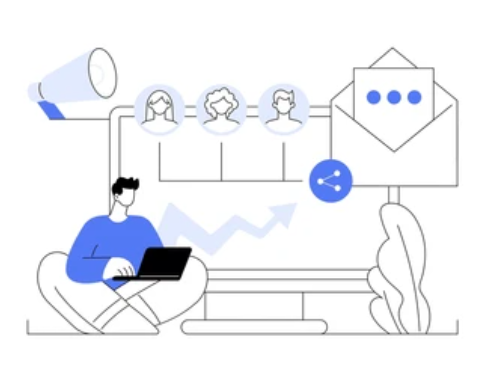Email Marketing for B2B: Strategies for Success
Email marketing is a powerful tool for B2B (business-to-business) organizations to connect with their target audience, generate leads, and drive business growth. With its ability to deliver targeted and personalized messages, email marketing enables B2B businesses to build relationships, nurture prospects, and convert them into valuable customers. In this article, we will explore effective strategies for B2B email marketing success.
Understand Your Audience
The foundation of any successful B2B email marketing strategy is a deep understanding of your target audience. Research and analyze your ideal customer profile (ICP), considering factors such as industry, job titles, pain points, and challenges. By understanding your audience's needs and preferences, you can tailor your email campaigns to address their specific pain points and provide valuable solutions.
Segment Your Email List
Segmentation plays a crucial role in B2B email marketing. Divide your email list into relevant segments based on criteria such as industry, company size, job title, or stage in the sales funnel. Segmentation allows you to deliver highly targeted and personalized content to each segment, increasing the relevance and effectiveness of your campaigns. By catering to the specific interests and needs of each segment, you can maximize engagement and conversion rates.
Provide Valuable and Educational Content
B2B audiences are often seeking informative and educational content to help them solve their business challenges. Deliver value through your email campaigns by providing industry insights, case studies, whitepapers, e-books, or informative blog articles. Position yourself as a trusted resource and thought leader in your industry. Focus on addressing your audience's pain points, answering their questions, and providing actionable solutions. By consistently delivering valuable content, you can establish credibility and build trust with your B2B audience.
Utilize Personalization
Personalization is key to successful B2B email marketing. Use data and segmentation to personalize your email content, subject lines, and CTAs (calls to action). Address recipients by name, reference their company or industry, and tailor your message based on their specific interests or preferences. Personalization helps to create a more relevant and engaging experience for your B2B audience, increasing the chances of engagement and conversion.
Leverage Automation and Drip Campaigns
Automation and drip campaigns are essential for effective B2B email marketing. Set up automated workflows that deliver a series of relevant emails over time based on specific triggers or actions. For example, you can create a drip campaign for new subscribers that provides onboarding information, highlights key features, and offers educational resources. Automation ensures consistent and timely communication, nurturing prospects and guiding them through the sales funnel.
Optimize for Mobile
In today's mobile-centric world, optimizing your B2B emails for mobile devices is crucial. A significant portion of professionals access emails on their smartphones or tablets, so ensure that your email templates are mobile-responsive. Test your emails across various devices and screen sizes to ensure they render correctly and provide a seamless user experience. Mobile optimization improves engagement and ensures your messages are accessible to busy professionals on the go.
Analyze and Iterate
Regularly analyze the performance of your B2B email campaigns to gain insights and improve your strategies. Track key metrics such as open rates, click-through rates, conversion rates, and ROI (return on investment). Utilize email marketing analytics tools to understand recipient behavior, segment performance, and campaign effectiveness. Based on these insights, iterate and optimize your campaigns by testing different variables, refining your content, and enhancing your targeting strategies.
Conclusion
Email marketing is a powerful tool for B2B organizations to connect with their target audience, generate leads, and drive business growth. By understanding your audience, segmenting your email list, providing valuable content, leveraging personalization, utilizing automation and drip campaigns, optimizing for mobile, and analyzing and iterating, you can achieve B2B email marketing success. By delivering targeted and personalized messages that address your audience's pain points and provide valuable solutions, you can build relationships, nurture prospects, and convert them into loyal customers. Embrace these strategies and maximize the potential of email marketing to drive success for your B2B organization.











